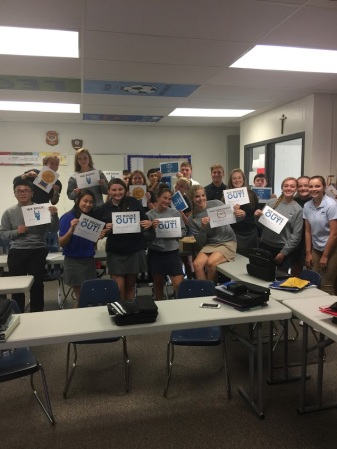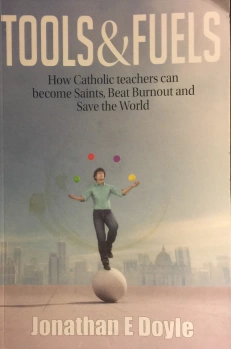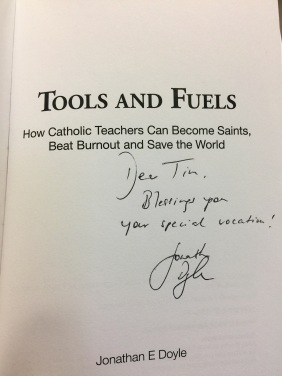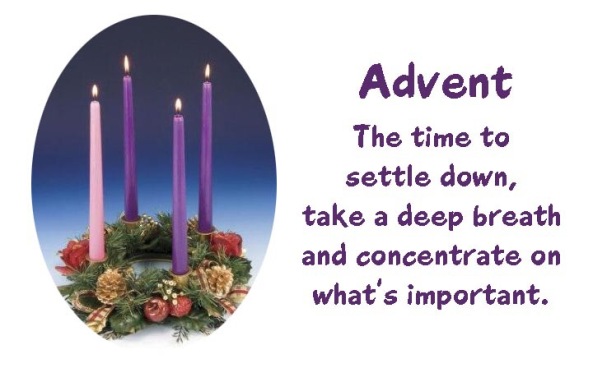via Top Ten Lists
Top Ten Lists
 I guess you could say I’m a fan of the top ten lists ever since David Letterman started doing them on the Tonight Show. I can’t believe that I never did one of these on this blog. I was inspired by another AP Psychology teacher who had a listing of top tens and it got me thinking… The interesting thing is that not a single item on my lists is the same as on her lists. I thought for sure that there would be some overlap, but we must just have different priorities.
I guess you could say I’m a fan of the top ten lists ever since David Letterman started doing them on the Tonight Show. I can’t believe that I never did one of these on this blog. I was inspired by another AP Psychology teacher who had a listing of top tens and it got me thinking… The interesting thing is that not a single item on my lists is the same as on her lists. I thought for sure that there would be some overlap, but we must just have different priorities.
Without further ado here are my top ten lists (items on the list are in no particular order);
Top Ten Movies Everyone Should Watch
- The Passion of the Christ
- The Scarlet and the Black
- The Rookie
- We Were Soldiers
- Groundhog Day
- Schindler’s List
- The Bells of St. Mary’s
- Pope John Paul II
- Rudy
- Princess Bride
Ten Documentaries Everyone Should See
- The Fog of War: Eleven Lessons from the Life of Robert S. McNamara
- Beneath the Plains: The Minuteman Missile on Alert
- Desert Storm: The Ultimate War
- Planet Earth II
- Inside 9/11
- The Civil War – Ken Burns
- Cosmos: A Spacetime Odyssey
- The Atomic Café
- The Vatican: A Hidden World
- Liberating a Continent: John Paul II and the Fall of Communism
Top Ten Books Everyone Should Read Before Going to College
- Orwell (1984 and Animal Farm)
- Brave New World – Huxley
- The Story of the World, Bauer
- C.S. Lewis – Everything he has written but especially his Space Trilogy (beginning with Out of the Silent Planet), Mere Christianity, Chronicles of Narnia (series) and The Screwtape Letters
- Harry Potter (series) – Rowling
- Jesus of Nazareth (there are two others also) – Pope Benedict XVI
- The President, the Pope, and the Prime Minister: Three Who Changed the World – O’Sullivan
- The Arms of Love (series) – Marcoux
- The Art of War – Sun Tzu
- The Prince – Machiavelli
Bonus: The Holy Bible and The Catechism of the Catholic Church
I would like to hear what you think of the list. Don’t be afraid to begin a conversation! We may disagree, but you never know, you could change people’s minds.
A Matter of Time

Playing BreakOutEDU at the beginning of the school year.
It has been quite some time since I last blogged. I have been doing a lot of research about how kids best learn. I have read/been reading the following books for my personal professional development: Ditch that Homework by Alice Keeler and Matt Miller, Make it Stick: The Science of Classroom Learning by Peter Brown, Henry Roediger, and Mark McDaniel, Hacking Digital Learning: 10 Ways to Launch EdTech Missions in Your Classroom by Shelly Sanchez Terrell, and Why Don’t Students Like School? A Cognitive Scientist Answers Questions About How the Mind Works and What it Means for the Classroom by Daniel Willingham.
All of this research takes time but time well worth it if my students benefit from what I learn. I have been trying to put these research backed ideas into practice, but I don’t really feel as though I’m being successful. I have spent time explaining to my students how to best study for transfer from short term to long term memory, how the brain works, and how to take notes based upon what research says works best for the brain. I believe that the problem I’m having is a matter of trust. Many of my students believe that the best way to take notes in U.S. History class is to just ignore whatever I talk about and ask for the PowerPoint presentation to be put online. I can tell them or show them what the research says but they believe that cramming and just rereading information right before a test is the best way to study. This seems to be so ingrained in their psyche that anything new/old will not work for them. I’m hoping that it is just a matter of time before they come to understand that spaced practice, retrieval practice, and elaboration will actually change the neural pathways in their brains to the point that information has transfered to long term memory.
Frequent quizzing is said to be helpful in the tranfer of information. I always think of quizzing the day before or the day of when I would like to quiz the kids, but then I feel like I’m surprising them and they feel like I’m not being fair even though quizzes make up only fifteen percent of their final grade. I’ve tried exit slips and I have found that this is a great way to gauge how well I covered material but I don’t feel that it’s something I should put in the grade book.
This is going to be a year long experiment with what I hope will be great long term effects. If you have any advice or would like to help me out drop me a comment or send me an Email. Lets hope that it doesn’t take me another five months to come back to blogging.
A Call to Catholic Teachers
I just finished reading Jonathan Doyle’s new book Tools & Fuels last night.  It is a truly inspirational book with simple advice for anyone involved in Catholic education. Doyle takes the reader on a journey of discovery. From viewing Catholic schools as a mission, “(That) they exist as an integral part of the mission that is the Catholic Church” to his mantra of, “you can’t do a supernatural task with only natural resources” Jonathan expertly narrows the focus of Catholic schools down to simply putting Christ at the center. It’s something so simple and so easy to put into action but many in Catholic education make it much more difficult than it needs to be.
It is a truly inspirational book with simple advice for anyone involved in Catholic education. Doyle takes the reader on a journey of discovery. From viewing Catholic schools as a mission, “(That) they exist as an integral part of the mission that is the Catholic Church” to his mantra of, “you can’t do a supernatural task with only natural resources” Jonathan expertly narrows the focus of Catholic schools down to simply putting Christ at the center. It’s something so simple and so easy to put into action but many in Catholic education make it much more difficult than it needs to be.
I have seen first-hand how many Catholic schools focus more on college prep, test scores, and analyzing data than they do on putting Jesus at the center of all that they do. Mr. Doyle issues a clarion call to step back and put our total dependence on God, only then can we become Saints, beat burnout, and save the world.
Weaving personal experiences, stories of saints, and quotes from Popes and theologians  into the narrative seamlessly makes for a captivating read. I can identify with the life experiences Jonathan shares on a very personal level. This man pours every fiber of his being into showing how the Catholic teacher is called by God to a vocation that is so important (helping form Saints) that only a total dependence on His help can we accomplish what He wants us to do.
into the narrative seamlessly makes for a captivating read. I can identify with the life experiences Jonathan shares on a very personal level. This man pours every fiber of his being into showing how the Catholic teacher is called by God to a vocation that is so important (helping form Saints) that only a total dependence on His help can we accomplish what He wants us to do.
I applaud Mr. Doyle for his energy, zeal, and willingness to be countercultural in a very disturbing point in our history. If you are a Catholic teacher, you MUST read this book. If there is one book you read this summer (other than the Bible) read this book! I’m just a high school teacher from Iowa but I truly think that if you teach, administrate, counsel, or work in a Catholic school that this book will change your life.
What’s the Point?
As a family we recently started watching the television series “The Walton’s.” I remember watching the series back in the days of three analog channels. The show takes place on a mountain in West Virginia during the depression. At the time, a person could buy a bull calf or a new drive shaft for $9.00. Radio was the only form of electronic entertainment and some houses didn’t even have telephones. Work was hard to find and those that could find it worked hard
.
So why the history lesson? I get nostalgic whenever I watch shows like this. Shows that put our humanity into perspective and the values of life, love, journeys, family, and relationships. I ask myself at times if, with all the technology we have at our fingertips, have we lost some of these values? Do we not need these values anymore? Are the old days and old ways no longer applicable?
On “The Walton’s” John Boy is the oldest son and he processes his thoughts by writing pen on paper much like I process by typing on my blog. He was more diligent than I have been the past few months. Yet, there is still something about taking pen and paper to process thoughts that resonates with the human psyche.
I have noticed a number of news articles lately stating that using computers for notes and discussion in class leads to less retention by students. I try constantly to get my students to understand that by taking physical notes they will have better comprehension and retain information longer. Jesus taught by using parables and through example. He constantly challenged the conventional wisdom of the day. See, parables were intended to get people to stop and think. Isn’t that the point of a high school theology course?
Aha! We need to stop and think, we need to discuss Church teachings, we need to explore the values of life, love, journeys, family, and relationships. This must be face to face not device to device. If I didn’t sit with my students and process what they read in their textbooks, then good questions and relationships would not develop. If I didn’t introduce my students to the four types of love as put forth by C.S. Lewis, How could we have a discussion about family, love, and relationships?
Catholic theology teachers also need to teach students how to look references up in the Catechism of the Catholic Church, Vatican Council II: The Conciliar and Post Conciliar Documents, and various papal encyclicals. They also need help knowing how to find the answer to the various questions that invariably come up in a teenagers life. Of course, getting them comfortable with asking their parish priest for guidance should be practiced also. How do they get to practice this if they either don’t go to mass or if they don’t have some sort of relationship with their parish priest? I have made it a priority to invite priests and other religious into my theology class so that my students can become comfortable in knowing these people at a personal level.
Nothing has really changed from the times of the Walton’s. The things around us might change, our modes of entertainment might change, but humanity has not really changed since our beginning. Values matter, relationships matter, love matters teaching our students with the guidance of the Holy Spirit and a Christ like spirit of charity is necessary in every generation.
Good night John Boy!
Preparing for Christmas
Being a husband, a father of four school aged children, and a theology teacher to 70+ students can be challenging in the best of times. At a time like Advent it could downright drive one to drink. Christmas music has been playing for weeks, Black Friday has come and gone, Cyber Monday is upon us, and many a tree has been trimmed.
Society, school, and the media are telling us to buy things, to not forget that someone special, and that we’ll be happy if we get more things. Oh, and go ahead and spoil yourself while you’re at it. In listening to my parish priest’s homily this morning, I was reminded that Advent is a time for reflection/prayer, for looking forward to the coming of Christ not only in the celebration of Christmas but at the end of life, and for detaching from the rush of life.
As Catholics and Christians we are called to be counter cultural and there is no better time to do that then during Advent. We are asked to live and work in the world but not be of the world. How can we possibly live this out during this busy time of year? It takes some planning, dedication, and strength.
I will be sharing my personal plan with my ninth grade theology students and my grade 7/8 religion kiddos (see plan below). I will ask my students to begin some sort of Bible reflection (daily Bible reading, Advent reading, or even readings from an Advent calendar). Once you have found your source, set up your plan.
The keys to doing this are simple. 1. find 15 minutes each day for just this activity. If that means waking fifteen minutes earlier in the morning, then just do it. Set up what you will need for the morning the night before. 2. Find a place that is comfortable. 3. Find a holy object to hold onto or to look at that is calming. 4. Play Advent music in the background (this works best if it is just instrumental).
Whatever you do, put Christ in the center and reflect on what he has done for you and make a plan to be for him and with him at the end of time.
- Morning Prayer in the chapel – Liturgy of the Hours
- Advent Reflection in all theology/religion classes – Little Blue Book
- Reading – Jesus of Nazareth: The Infancy Narratives (by Pope Benedict XVI)
The Most Difficult Teaching
For the past three years I have had the pleasure and the honor of teaching at a Catholic Jr/Sr High School. Many people have said that teaching in Catholic education is easy. Less discipline issues, smaller class sizes, greater support of parents, etc. While sometimes these things are true, being a teacher in a Catholic school definitely has its challenges.
The most challenging course I teach is religion. I have three sections of ninth grade theology. In this course I want to draw my students into a closer relationship with Jesus Christ. This is the perfect class for putting faith into action. However, I’m constantly amazed at how ninth grade students can know the difference between what’s right and what’s wrong yet consistently choose to do what’s wrong!
This past week we had an all school mass on the feast of the Archangels. Father gave a wonderful homily that focused on Jesus’s core teaching to love one another (Matthew 22:35-40). He talked about being Catholic by living a Christian life in word and deed. This is not the first time my ninth grade students have heard this message, but it’s like it goes in their heads for about 30 seconds and then it’s completely forgotten. The three Archangels[/caption]
The three Archangels[/caption]
I am certain that this message gets reinforced daily but they keep forgetting or regressing. It is even the primary lesson I want my students to be able to understand and put into action when they are both inside and outside of my classroom. If I can’t help my kids to love one another and their neighbors as themselves have I failed?
I believe that theology is the most difficult teaching we do in Catholic schools because we have to model Jesus in our thoughts, actions, and deeds as well as teach a curriculum that is literally endless. Putting others especially God first is so counter cultural. When our culture dictates that we need personal branding, that we need to use social media to keep up to date and talk with our friends, and that being a leader and an extrovert is far superior to being a reflective thinker and introvert we will struggle to put faith into action. While our culture reveres the athlete, the movie star, and the accumulation of things over living the Gospel message, our teaching and modeling will continue to fall on deaf ears. What can we do to get our kids to become counter cultural and seek to do God’s will?
Teaching Strategies: Are They Worth It?
 Teaching strategies is a topic I give a lot of thought to. Hattie’s Visible Learning and effect size is getting much of my attention as of late. The FIT teaching approach as a framework for growth and leadership piques my curiosity. Carol Dwerks’s Mindsets make mind sense. And, the teachers throwing out grades (#ttog) movement has me focused on feedback versus letter grades.
Teaching strategies is a topic I give a lot of thought to. Hattie’s Visible Learning and effect size is getting much of my attention as of late. The FIT teaching approach as a framework for growth and leadership piques my curiosity. Carol Dwerks’s Mindsets make mind sense. And, the teachers throwing out grades (#ttog) movement has me focused on feedback versus letter grades.
 I teach three sections of 9th grade theology and there is a lot of new vocabulary that then represents ideas or concepts that are highly elusive in the best of times. So, I was searching for strategies and came across a website for Marzano research that offers access to over 300 teaching strategies for $30.00 per month yearly subscription. I was wondering if anyone has used this subscription service and whether it is worth the price?
I teach three sections of 9th grade theology and there is a lot of new vocabulary that then represents ideas or concepts that are highly elusive in the best of times. So, I was searching for strategies and came across a website for Marzano research that offers access to over 300 teaching strategies for $30.00 per month yearly subscription. I was wondering if anyone has used this subscription service and whether it is worth the price?You Might Be A Teacher If….
Happy Birthday to the world’s newest teenager!

I have been working on my theology 9 curriculum a lot this summer. So far no vacation yet nor in the near future. Maybe next year. I really enjoy writing curriculum so this is by no means a chore. However, it does take humongous blocks of time to think through and process the sequencing of learning experiences and aligning them to the United States Council of Catholic Bishops Framework for high schools.
In my spare time I’m taking an online course toward a graduate certificate to teach online (can we see where the future of education is moving?). Oh, let’s not forget professional development via social media along with research about how the brain works, mindsets, visible learning, vocabulary strategies, and FIT teaching. It’s a good thing I gave up all my hobbies years ago. I do love what I do and I know the payoff will come in being prepared with intentionally designed lessons when the kids come back to school.
If all this sounds familiar or you have found yourself nodding along, then you’re probably a teacher. If you’re thinking nope, work begins at 8 am and ends at 5 pm, then you’re probably in a different occupation and I thank you for visiting my blog. I actually dated a girl in college who really believed that teachers could just be done for the day when school got out! If the only time you can go on vacation is when the airlines are charging the most, then you’re probably a teacher. If you have the luxury of pulling your kids out of class for a week or two during the school year (most likely the week before a quarter ends) because you found cheap tickets to Waldo’s World, then you’re probably not a teacher.
I would just love to meet some of those people who say that teachers get to have the summers off. Or, and I love this one, teachers get twelve weeks of vacation in the summer, plus two weeks at Christmas, and a week long spring break. And the always charming, teachers are overpaid.
The old adage, “those who can do, those who can’t teach,” had to have come from someone who never spent any number of years teaching. Now I’m not angry or jealous of those who think these thoughts or those who might even express them, because I truly love what I do and I am blessed to be able to touch the future every day. To those of you that don’t understand a teachers life, I pray for you every day. And to those of you that have been nodding as you’re reading, I pray for you too. Let’s keep the profession classy and never stop being there for one another.
Teaching: What Works?
I teach a year 9 theology course where there are lots of new vocabulary, many abstract concepts that need to be made concrete, and students who will doubt the validity of what I teach. Because of this, I have been searching for how to best serve my students and I have run across some ideas that are tried and true. Don’t get me wrong, I’m not afraid of change or trying new things, but I do want my kids to have a solid foundation in faith. The guiding principles at my school are “Inspiring Faith and Excellence.”
Earlier this spring I came across two sources that stated what the best teaching strategies are based upon research. Results from small research studies can be posted almost as soon as a researcher has completed a project. Which means they need to be taken with a grain of salt. Personally, I feel as though I was cheated in my teacher education program and that I need to begin teaching with strategies that have been proven through research to work.
The National Council of Teaching Quality (NCTQ) published this work that stated the following about fundamental teaching strategies:
1. Pair graphics with words,
2. Link abstract concepts with concrete. Brepresentations,
3. Pose probing questions,
4. Repeatedly alternating problems with solutions and problems that need to be solved,
5. Distributing practice,
6. Assessing to boost retention.
Some of these may seem to be pretty obvious but there were four that were new to me (numbers 3-6). I would think that having been teaching for more than twenty years I would be familiar with all six “fundamental teaching strategies.”
I also have been reading John Hattie and Gregory Yates’s book titled Visible Learning and the Science of How We Learn. I was also generally surprised to see that the teaching strategies that had the greatest affects on student learning matched nicely with the NCTQ report. I keep hearing people talk about teachers being facilitators of learning, coaches, or guide on the side. But, in Hattie and Yates’s book, direct instruction, feedback, and teacher clarity had just more than double the effect size as inductive teaching, simulation and gaming, and problem based learning.
I’m also glad to see that scaffolding, as shared in this recent post from Edutopia by Rebecca Alber, was also mentioned in the Visible Learning book as a “critical instructional component.” Hattie and Yates also state, …”there is little basis to suggest that personal discovery within itself assists a person to actually learn. In fact, additional load (cognitive load) imposed by the need to explore and find things out can detract from our capacity to assimilate the information uncovered.”
So what does all this mean for me as a teacher? It means that I need to build solid relationships with my students, use fundamentally sound research based teaching strategies that have been proven to work, scaffold learning, and make sure my kids get timely feedback. I also see a disconnect between what teachers are saying works (teacher as facilitator) and what research has proven to work (teacher as activator). Thoughts anyone?


